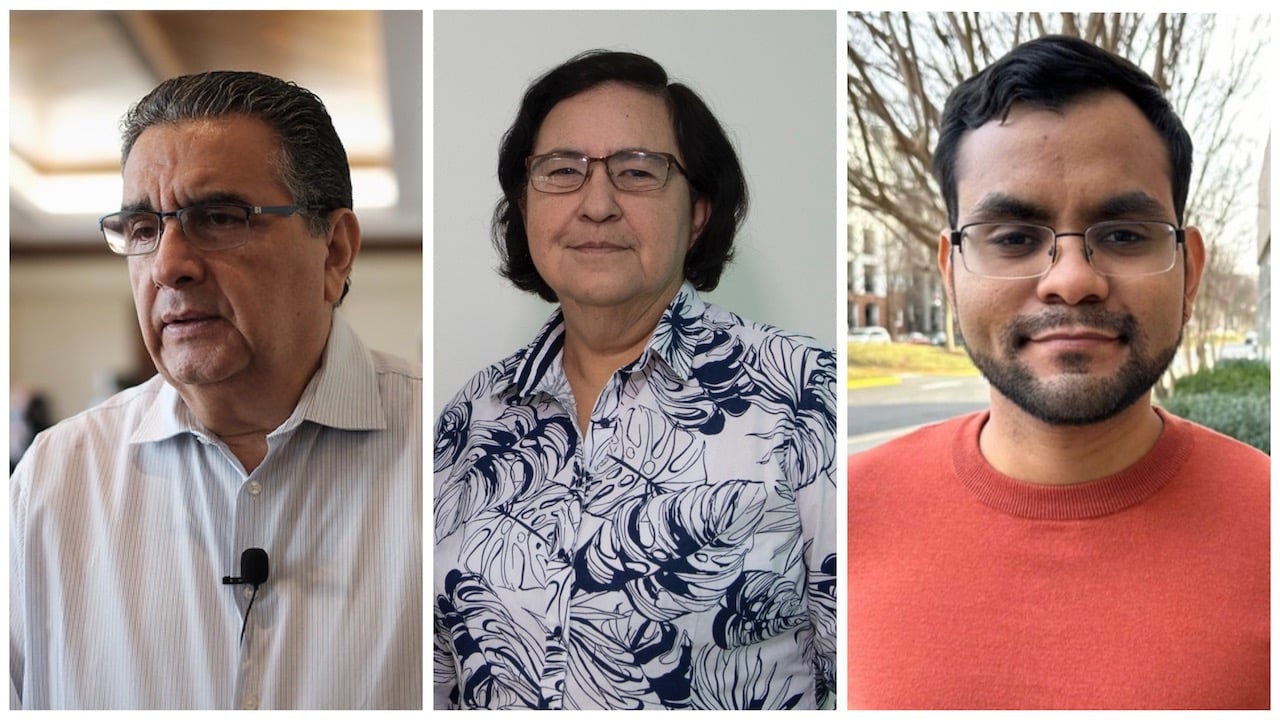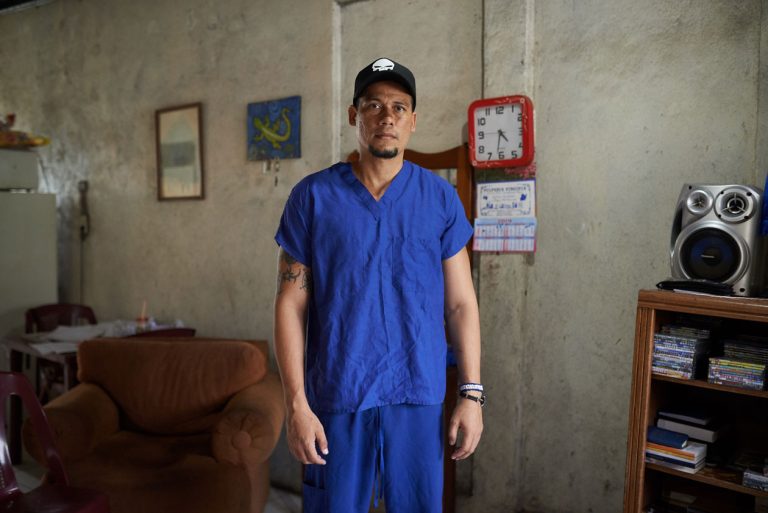22 de marzo 2019

Dialogue and Elections: “The Peaceful Way Out of the Dictatorship”

PUBLICIDAD 1M
PUBLICIDAD 4D
PUBLICIDAD 5D
This athlete is one of the political prisoners whose confinement status was changed by the dictatorship from prison to house arrest.

Carlos Silva Rodriguez left prison on February 27. Today he’s under house arrest. Photo: Carlos Herrera
The sensation of freedom only lasted 3 days for Carlos Silva Rodriguez. On February 27, he had been one of the hundred political prisoners who left jail for house arrest. The night before, he couldn’t sleep peacefully. It had been announced to the prisoners that a group “was leaving”. Just like that, nothing more. When he got home that morning, Silva believed himself to be “a free man”. But 48 hours later, they notified his lawyer that Silva would need to appear before the authorities on the 26th of each month, and that he would continue to be a prisoner in his own home.
“We never imagined that we’d be leaving for real that day,” says Carlos, who has maintained his athletic build despite the prison diet and not having touched a basketball – his favorite activity before becoming a political prisoner – in more than six months.
Carlos Silva was sentenced to four years in prison for charges of “toppling one of the ‘trees of life’ [metal trees installed along Managua’s main boulevards, under the direction of Vice President Rosario Murillo], damaging public property, exposing people to danger, and theft with intimidation.”
They called him a “roadblocker” and accused him of heading “a delinquent gang from Managua’s National Autonomous University (UNAN).” However, Silva affirms that his only “crime” was to demonstrate against the regime in a civic manner, “like any citizen”, and to have uploaded a photo of himself beside a toppled Chayopalo” [popular slang for the metal trees, combining the nickname for “Rosario” with the common word for trees]. This photo, which the prosecution coped from Silva’s social media account, formed the supposed “evidence” to convict him.
“They invented the story that I was a permanent fixture at the roadblocks, charging twenty cordobas to pass. That’s false. The fact that I’ve gone to marches, that I didn’t like the injustice in my country doesn’t give them the right to invent this slander, because I’m a decent man. I’d been a free citizen for 43 years, I’d never been inside a jail, I’d never been loaded into a police vehicle, and no one had ever sued me for anything,” he declares.
While he was sitting in one of the Penitentiary System’s buses that would be taking him home, Carlos Silva feared that his family members would still be looking for him at the gates to La Modelo, the prison where he’d been. The dictatorship had kept the information tightly sealed, and the act of “liberation” wasn’t conducted under normal due process.
“After they took us out of the galleries, they brought us to an auditorium where they did our paperwork. We noted that the document they gave us was a simple document where they were giving us our freedom. We said: “We’re free,” the prisoner recalled.
Almost 48 hours later, he received notice that his status was actually that of “house arrest”. More vigilance was also put into effect. Silva complains of the presence of police patrols in front of his house, of men dressed in civilian clothes who meander back and forth “mysteriously” with a notebook in hand. “Out of fear, I don’t even want to show my face at the door. I’m scared they’ll say I provoked them, or that I threatened them,” Carlos says.
“Don’t think I’m happy”
Inside the house we found Carlos Silva watching a soccer match. While the sportscaster’s voice ran on, the former prisoner remained seated, watching the passes and the plays. He was dressed in loose cotton pants, Croc sandals and a sleeveless shirt. All his clothing is blue: the same outfit he was using behind bars. “It’s a form of solidarity,” he says, but also because he can’t forget the 187 days he spent locked up.
“[Dressing in blue] is my way of protesting, because everyone has to be let out and we need to change the house arrest status,” he demands. The suit is a replica of the one he was using in La Modelo. He also tells us that he hasn’t forgotten what day to day life was like in jail: the sound of the locks, the asphyxiating darkness of the cells, or when they made them strip.
“When I’m drinking a cold soda or when I’m having lunch, I always remember them (the other political prisoners), and I feel sad because even buying ice was difficult [in jail]. We could do it once every two weeks, and those who didn’t get money sent shared with the others. There was an atmosphere of unity. I think of them each time I can eat a hot dinner or drink a cold soda, and that saddens me,” he affirms. In prison, even going to the bathroom was “a privilege”, since many of the prisoners of conscience didn’t have one.
The arrest
On August 26, Carlos Silva never finished his last game of basketball. In the middle of the match, he was forcibly removed from the Luis Alfonso Velazquez park in Managua by a group of National Police. After that, he spent 55 days in the El Chipote jail, formally known as the Directorate of Judicial Assistance, where his health deteriorated. His family members complained that due to the darkness that reigns in the cells he began to have vision problems.
When the April protests exploded and the first citizens were killed in the streets by the regime, this basketball player decided to demonstrate peacefully. The event that marked him most deeply was the killing of Alvaro Conrado Davila on April 20. The 15-year-old had snuck out of his house to bring water to the demonstrators, and a sniper’s bullet perforated his throat.
From that moment on, Silva joined in with the “pot-banging” and the demonstrations that were taking place in his neighborhood. This was his only form of protest, he tells us, but nonetheless the dictatorship charged and processed him as a first class penal case for supposedly toppling a “tree of life”.
These were taken down in a frenzy in April by dozens of demonstrators to symbolize their rejection of the dictatorship. The former prison inmate denies the accusations that he participated. “They have no right to do this to me. I’d like to see a form of justice more divine than that on earth. I have no resentment, I don’t want revenge. I’m going to try to be the same citizen as before, although I’m no longer the same.”
Archivado como:
PUBLICIDAD 3M
Periodista nicaragüense con tres años de trayectoria en cobertura de temas culturales y derechos humanos. Ganador del Premio Pedro Joaquín Chamorro a la Excelencia Periodística.
PUBLICIDAD 3D